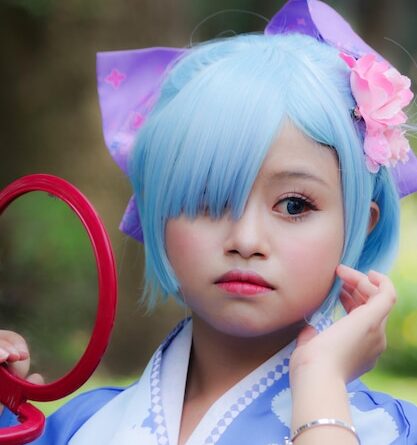J-Pop Hitmaker Yasushi Akimoto vs AI Showdown
J-Pop’s Legendary Hitmaker Faces Off Against AI in Songwriting Duel
On September 17, 2025, a groundbreaking event unfolded in the world of J-Pop, as renowned songwriter Yasushi Akimoto faced off against an AI version of himself in a songwriting contest for AKB48, one of Japan’s most iconic idol groups. This competition not only highlighted the evolution of music technology but also marked a significant moment in Akimoto’s illustrious career as he celebrated the 20th anniversary of AKB48.
At a Glance
- Event Date: September 17, 2025
- Contestants: Yasushi Akimoto vs. AI Akimoto
- Winning Song: “Omoide Scroll” with 14,225 votes
- Runner-up: “Cécile” by Yasushi Akimoto
- Significance: First-ever AI-generated song for AKB48
The Contest: A Showdown of Creativity
The contest was broadcast on Nippon TV, where Akimoto and the AI, powered by Google’s Gemini software, were tasked with writing a single for AKB48. Gemini analyzed Akimoto’s extensive body of work, learning his unique songwriting style and creative thought processes. The AI-generated lyrics for the track titled “Omoide Scroll” while also determining which of AKB48’s 43 members would perform it. This innovative approach showcased the potential of AI in the creative arts, yet the song was ultimately refined and arranged by human hands.
The Songs: A Closer Look
Akimoto’s entry, “Cécile,” was a heartfelt composition that he poured his emotions into. However, it was “Omoide Scroll” that captured the hearts of fans in a public vote that concluded on September 7. Voters were not informed which song was penned by the AI and which by the legendary songwriter, adding an element of suspense to the competition.
Results and Reactions
When the results were revealed, “Omoide Scroll” emerged victorious, garnering 14,225 votes, surpassing “Cécile” by over 3,500 votes. The reaction from the audience and participants was palpable. Rino Sashihara, a former AKB48 member and host of the event, expressed her disbelief, exclaiming, “What? You’re kidding me!” Akimoto, though disappointed, acknowledged the significance of the event and remarked, “Shut up,” in response to AI Akimoto’s playful jab about perhaps trying to innovate by losing.
The Aftermath: What’s Next for AKB48?
Following the announcement, “Cécile” was promptly removed from YouTube, while “Omoide Scroll” became AKB48’s 67th official single. The track was made available on various streaming platforms, marking a new chapter for the group. Prior to this, AKB48 had enjoyed a successful streak with their previous single, “Oh My Pumpkin,” which became their 53rd consecutive song to top the Oricon Chart, a record that began with their hit “River” in 2009. Fans are now eagerly awaiting to see if the AI-assisted “Omoide Scroll” can extend that streak to 54.
Akimoto’s Legacy in J-Pop
Yasushi Akimoto is widely regarded as Japan’s best-selling lyricist, with his songs selling over 100 million copies. His influence extends beyond AKB48, having penned lyrics for other major idol groups like Kinki Kids and Nogizaka46. Notably, he also wrote Hibari Misora’s last single, “Kawa no Nagare no Yo ni,” which was voted the greatest Japanese song of all time in a national poll conducted by NHK.
A Multifaceted Career
Beyond music, Akimoto has made a name for himself as an author. His novel, “Chakushin Ari” (One Missed Call), was adapted into a film by acclaimed director Takashi Miike in 2003, showcasing his versatility as a creative. Akimoto’s ability to transcend genres and mediums has solidified his status as a cultural icon in Japan.
The Role of AI in Music Creation
The emergence of AI in music creation raises intriguing questions about the future of songwriting and artistic expression. The use of AI tools like Google’s Gemini opens new avenues for collaboration between humans and machines. While AI can analyze patterns and generate lyrics, the emotional depth and personal experiences that human songwriters bring to their work remain irreplaceable. The contest between Akimoto and AI Akimoto exemplifies this balance, showcasing how technology can complement human creativity rather than replace it.
The Future of AI in the Music Industry
As technology continues to advance, the music industry is likely to see more collaborations between artists and AI. This could lead to innovative sounds and styles, pushing the boundaries of what is considered music. However, it also raises ethical considerations regarding authorship and the definition of creativity. As fans and creators navigate this new landscape, the importance of human touch in music will remain a central discussion point.
Reader Q&A
1. How did the AI learn Akimoto’s songwriting style?
Google’s Gemini software analyzed Akimoto’s extensive catalog of work, studying his lyrical patterns and thematic choices to create a song that aligned with his style.
2. What was the public’s reaction to the AI-generated song?
The public was surprised and intrigued by the outcome, as many did not expect an AI-generated song to outperform one created by a legendary songwriter.
3. What does this contest mean for the future of J-Pop?
This event signifies a potential shift in the music industry, where AI could play a role in songwriting, while also emphasizing the irreplaceable value of human creativity.

